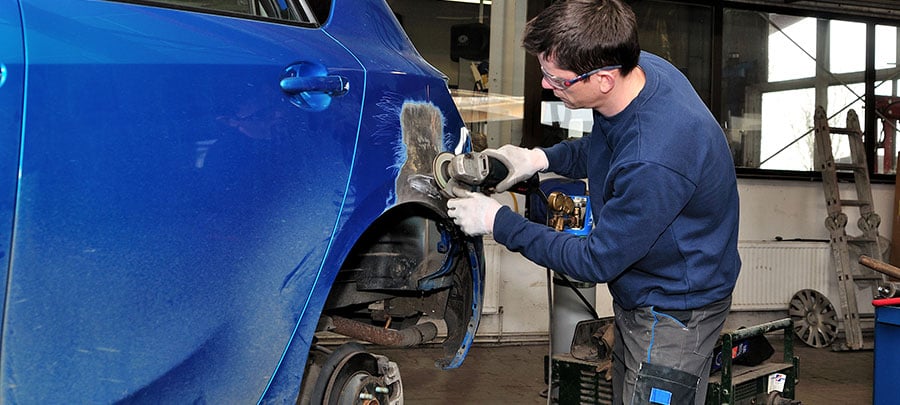
Who is Responsible for Providing Me with a Rental Car While My Vehicle is Being Repaired?
As an experienced personal injury attorney, I’ve seen my fair share of car accidents and the myriad of complications they bring. One question I’m often asked concerns rental cars post-accident: Who is responsible for providing one while my vehicle is being repaired? Understanding this is crucial, especially when you’re dealing with the stress of an accident.
When Another Driver is at Fault
If your car was damaged due to another driver’s negligence, typically, the other driver’s insurance company should cover your rental car costs for a reasonable repair time. This is grounded in the principle that the at-fault party bears the cost of the consequences of their actions. However, policies can vary, and it’s always wise to confirm with the involved insurance companies.
You’re Responsible for the Accident
In cases where you’re at fault, the situation changes. Your ability to get a rental car depends on your insurance coverage. If you have rental reimbursement coverage in your policy, then your insurer should cover the rental car costs. Remember, this is an optional coverage and not automatically included in all auto insurance policies.
When Fault is Disputed After an Accident
Disputes over who is at fault in an accident can complicate matters. It’s essential to stay in communication with your insurance company during such disputes. If the other party’s insurer makes a reasonable offer and you don’t respond, you might end up being responsible for additional costs, like storage fees.
5 Steps to Getting a Rental Car After a Car Accident
- Review Your Insurance Policy: Begin by checking if your policy covers rental cars post-accident. Look for specifics like daily maximum amounts and maximum number of days covered.
- Contact Your Insurance Agent: They can guide you on what coverage you have for a rental car and other transportation options.
- Understand the Coverage: Know what coverage you have while driving the rental car. Is it the same as your personal car, or do you need additional insurance?
- Discuss with the At-Fault Party’s Insurer: If another driver caused the accident, their insurance might cover your rental car. Confirm with them for clarity.
- Consider Your Transportation Needs: If your car takes longer to repair than the covered period, explore alternative transportation options, like rideshares or public transit.
Bottom Line
The question of who provides a rental car while yours is being repaired after an accident isn’t always straightforward. It largely depends on the specifics of the accident, the involved insurance policies, and sometimes, the resolution of fault disputes. Remember, each situation is unique, and having knowledgeable legal guidance can make a significant difference.
Contact Our Car Accident Lawyers
Navigating the aftermath of a car accident, especially when it involves insurance claims for rental cars, can be daunting. As someone who’s been guiding families through these legal mazes for over three decades, I understand the importance of expert legal advice. Our team at Lamber Goodnow is equipped to help you navigate these challenging situations with the expertise and compassion you deserve.

FAQs
Here are some of the most commonly asked questions people have about rental car reimbursements following accidents.
Q: What Do to Do When the Insurance Company Is Giving You the Run-Around?
A: When the at-fault driver’s insurance company argues that you were at fault, disputes your claim for damages, or doesn’t immediately make a decision, this means that you won’t receive a rental car reimbursement until after the claims process is finished and the other motorist is found to e at-fault. If your auto insurance policy includes coverage for rental car costs, you can file a claim with your insurer to cover the cost of your rental car. Your insurance company will then seek to subrogate the other motorist’s policy to recover what it pays for your rental car. You will need to check your policy to see how long your company will cover the costs of your rental car. If you need to use the car for longer than that, you will have to pay out-of-pocket to continue driving the rental vehicle past that time. Make sure to keep the receipts for all amounts you paid out-of-pocket after your insurer’s rental car coverage period ends.
On the other hand, if you do not have rental car coverage on your insurance policy, the situation will be different when the other insurance company denies liability or doesn’t immediately make a decision about your claim. In that case, you can pay for the costs of your rental vehicle yourself or can charge the cost to your credit card. This can be risky because you won’t be reimbursed for your rental fees if the other motorist is not found to be at fault.
If the other motorist is determined to be at fault for your collision, the driver’s insurance company will have to reimburse you for your rental car costs and other damages. However, the claims process can be lengthy. If you and the other party dispute which of you was responsible for the accident, it could take months before your claim is resolved.
Q: Is it Possible to Speed the Process Up and Put More Pressure on the At-Fault Driver’s Insurance Company?
A: If you are trying to navigate the claims process without the help of an experienced attorney, you won’t have much to work with to place additional pressure on the at-fault driver’s insurance company. In that type of situation, you will be working from a position of less power as compared to the power of the insurance company. The company might take its time even when it is clear that the other driver was at fault. By contrast, when you are represented by an experienced and reputable attorney, the insurance company might move much faster because of the potential threat of a lawsuit.
If the other driver’s insurance company does agree to pay for your rental vehicle, you typically can keep using it until your vehicle is repaired or the insurer pays you for the value of your totaled car. However, you will need to check the laws in your jurisdiction and the policies of the insurance company since they can vary.
To protect yourself, make sure to fully document all communications you have with the insurance company. Ask the insurance adjuster to communicate with you in writing if possible so that you can retain the communications as evidence.
Q: What Happens When the Insurance Company Refusing to Pay for Rental Car?
A: Even when the other party is clearly at fault, many insurance companies will still refuse to authorize rental vehicles for accident victims. This can be especially difficult if you only have one vehicle. One option you might have is to contact your state’s insurance division. In Illinois, you would need to contact Illinois Division Insurance. While the Division of Insurance might not aggressively pursue your complaint, it will inquire about it. In some cases, that will be enough to get the insurance company to agree to pay for your rental car costs.
Your other option is to file a claim with your insurance company if you have comprehensive/collision coverage that includes rental car coverage. Your insurance company will pay for your rental car costs and pursue reimbursement from the other driver’s insurance company. If your insurance company succeeds, it will reimburse you for any deductible you had to pay out of its recovery from the at-fault driver’s insurance carrier.
You can also choose to retain a lawyer for help with recovering damages for your accident and losses. Your attorney can make a demand for your property losses and rental car fees in addition to losses caused by your injuries. When an attorney sends a demand letter, this might spur the insurance company into action. If you receive a settlement offer for your injury claim, read it carefully to make certain that you won’t be waiving your rights to your property damages and rental car fees. Your attorney will explain the settlement offer to you and help you determine whether or not it is reasonable.
Q: Following an Accident, Does at Fault Driver Pay for Rental Car?
A: If the other driver was at fault for your accident, their insurance company should be responsible for paying the costs of your rental car. However, insurance companies are in the business of making profits and often employ strategies to minimize how much they might have to pay out in claims. In some cases, an insurance company will admit fault and agree to pay for your rental car quickly. However, most insurance companies will dispute liability or take a long time to reach a decision. If that happens, you will either need to pay for your rental car out-of-pocket or by credit card. If you have rental car coverage on your insurance policy, you can submit a claim to your insurer to cover the costs of your rental car and let your insurer subrogate your claim against the other driver to seek reimbursement for the amounts it paid for your rental car.
Q: What Happens if Your Car Insurance Doesn’t Cover an Accident?
A: If you only have the minimum liability auto insurance required by the state and do not have comprehensive/collision coverage, your insurance company won’t pay for the costs of the damage to your vehicle or your injuries from your accident. If the other driver was at fault, you can file a claim with the driver’s insurance company to seek compensation for your losses.
If you have an uninsured/underinsured motorist policy (UM/UIM), you can file a claim with your insurance company under your UM/UIM coverage when the at-fault motorist was uninsured or did not have adequate insurance to cover your claim. This policy should make up the difference between your total damages and the amount of the other driver’s policy limits up to your UM/UIM policy limits. If your insurance company refuses to pay under your UM/UIM policy, your lawyer can help to pursue compensation from your insurance company for you.
Q: How Do I Get Rental Car Reimbursement Not at Fault Accident?
A: If you were not at fault for your accident, you have a few options for seeking reimbursement for your rental car fees. You can file a claim with the at-fault driver’s insurance company. While the company might admit fault and agree to pay for your rental car quickly, it is likelier to either dispute liability or to take its time making a decision. Your claim might take months to resolve, so you might need to pay your rental car costs out-of-pocket while you wait for your claim to be decided.
If that happens, you can file a claim with your insurance company if you have rental car coverage. Your insurance company can then pursue the at-fault driver’s insurance company to recover reimbursement for the amounts it paid as well as your deductible. If that happens, your company will refund the deductible to you.
Retaining an experienced attorney might help you to recover your rental car reimbursement for your collision much faster. The attorneys at Lamber Goodnow have years of experience dealing with accident claims and understand how to pressure insurance companies into acting faster. Your lawyer can also help you pursue compensation for your other economic and noneconomic losses in addition to your rental car fees and property damage.
Consulting with an attorney as soon as possible after your car accident is the best way for you to protect yourself. Your lawyer can begin placing pressure on the at-fault driver’s insurance company to recover compensation for you. If you don’t already have rental car reimbursement on your insurance policy, it is a good idea for you to add this type of coverage to protect you from future accidents. Rental car coverage won’t add too much cost to your insurance premiums, and it can help to protect you in similar situations.

